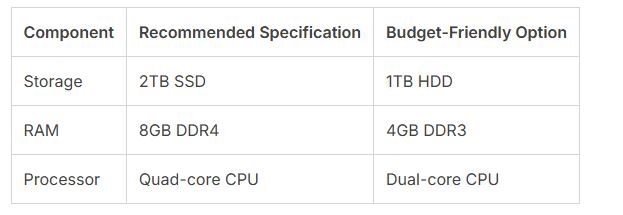Running a Bitcoin Node can be very profitable. It lets you help validate transactions on the bitcoin node profit network. This way, you help make the network more secure and decentralized.

Having a node supports the Bitcoin ecosystem and can even make you money. As more people get into cryptocurrencies, knowing how to run a node is key.
Key Takeaways about bitcoin node profit
- Running a Bitcoin Node contributes to the network’s decentralization and security.
- Operating a node can be a potential source of income.
- Understanding node operation is crucial in the growing cryptocurrency landscape.
- Participation in the Bitcoin network can be rewarding.
- Node operation supports the broader Bitcoin ecosystem.
What is a Bitcoin Node?
Understanding a Bitcoin node is key to knowing how the Bitcoin network works. A Bitcoin node is a computer that connects to the Bitcoin network. It verifies and relays transactions. This is essential for Bitcoin’s decentralized nature.
The Role of Nodes in the Bitcoin Network
Nodes are crucial in the Bitcoin network. They store the blockchain, check transactions, and keep the network safe.
They:
- Check transactions against the network’s rules
- Send verified transactions to other nodes
- Keep a full and updated blockchain copy
Full Nodes vs. Light Nodes
The Bitcoin network has two main types of nodes: full nodes and light nodes. Full nodes download and check the whole blockchain, offering top security and decentralization.
Light nodes, however, only download part of the blockchain. They depend on full nodes for transaction checks.
The main differences are:
- Storage needs: Full nodes need much more storage.
- Security: Full nodes are more secure because they check the whole blockchain.
- Whether to choose a full node or a light node depends on your needs and resources.

Why Running a Bitcoin Node Matters
Running a Bitcoin node is crucial for the network’s health. It helps keep the network strong and reliable.
Network Security and Decentralization
Running a Bitcoin node boosts network security. It checks transactions and makes sure the network follows its rules.
This is key for decentralization, stopping one person from controlling everything.
As Andreas Antonopoulos said, “The network is strong because it’s spread out, and it’s spread out because people run their own nodes.”
Personal Sovereignty in the Bitcoin Ecosystem
Running a Bitcoin node shows personal power in the bitcoin ecosystem. It lets people check transactions on their own, without needing others. This way, node operators help keep the network safe and keep their financial freedom.
“You can’t trust, you can verify”
This idea is why having a personal node is important.
Hardware Requirements for Running a Bitcoin Node
The hardware you choose for your Bitcoin node is crucial. It affects how well your node works and how reliable it is. Finding the right balance between performance and cost is key.
Recommended Specifications
To run a Bitcoin node smoothly, you need to meet specific hardware standards. These include processing power, memory, and storage.
Processing Power and Memory
A modern CPU with multiple cores is best. You’ll also need at least 2GB of RAM. This setup helps your node handle the Bitcoin network’s demands.
Storage Requirements
Storage is vital because your node must store the entire blockchain, which is over 400GB. A 1TB SSD is recommended for enough space and speed.

Budget-Friendly Options
While top-notch hardware is great, there are cheaper alternatives. You can opt for pre-built nodes or build your own.
Pre-built Node Solutions
Pre-built nodes, like those from Nodl or RaspberryPi, are easy to start with. They come with everything you need pre-set.
DIY Approaches
If you’re into building your own systems, you can use an Intel Core i5 or AMD Ryzen 5 processor. Add enough RAM and storage, and you’ll save money.
Experts say, “The success of a Bitcoin node depends on finding the right balance between hardware and cost.”
Software Options for Your Bitcoin Node
The world of Bitcoin node software is full of choices. Whether you’re new to Bitcoin or a seasoned fan, picking the right software is key. It ensures a smooth and efficient experience.
Bitcoin Core
Bitcoin Core is the official Bitcoin software. It was created by Satoshi Nakamoto and is maintained by a team of developers. It’s the most used Bitcoin client and is seen as the most secure and reliable.
Bitcoin Core lets you check transactions, keep a blockchain copy, and join the Bitcoin network.
Specialized Node Software
If you’re looking for something other than Bitcoin Core, there are other options.
These include:
- btcd: A Go-language version of the Bitcoin protocol.
- Libbitcoin: A cross-platform C++ toolkit for building Bitcoin apps.
These alternatives offer different features and benefits. They might have better performance or extra functions.
User-Friendly Node Interfaces
For those who want an easier experience, there are user-friendly node interfaces.
Examples are:

These interfaces help users manage their nodes better. They also offer extra features.
As
“Running a Bitcoin node is not just about supporting the network; it’s about being part of the decentralized movement.”
choosing the right software is a big step in this journey.
Step-by-Step Setup Guide
Here’s a step-by-step guide to help you set up your Bitcoin node. Setting up a node involves several key steps: hardware assembly, software installation, and network configuration.
Hardware Assembly
Start by assembling the necessary hardware for your Bitcoin node. You’ll need a reliable computer or dedicated device. Make sure it has enough storage and processing power.
Ensure your device has at least 2TB of storage to hold the full Bitcoin blockchain.
Software Installation
Once your hardware is ready, install the necessary software. Bitcoin Core is a popular choice. It’s reliable and has many features.
Network Configuration
After installing the software, set up your network settings. This includes setting up port forwarding and making sure your node is secure.
Port Forwarding
To allow incoming connections, set up port forwarding on your router. You’ll need to forward port 8333 for Bitcoin Core.
Security Considerations
Securing your node is key. Use strong passwords and keep your software up to date. This helps protect against threats.

Bitcoin Node Profit Opportunities
Bitcoin node operators can earn money in different ways. Running a Bitcoin node is not just about helping the network. It’s also a chance to make money.
Direct Income Methods
There are several ways to make money directly from a Bitcoin node. The main methods are routing fees and service fees.
Routing Fees
Routing fees come from helping with transactions on the Lightning Network. By joining the Lightning Network, you can earn fees for helping with transactions. The more reliable your node, the more you can earn.
Service Fees
Service fees are another way to make money. You can sell detailed blockchain data to users or businesses. The price depends on the quality and detail of the data.
Indirect Benefits and Value
Running a Bitcoin node also has indirect benefits. These benefits add value to the network.
Network Security Contributions
By running a full node, you help make the Bitcoin network more secure and decentralized. A decentralized network is better at fighting off attacks and censorship. This makes Bitcoin more valuable.
Transaction Privacy
Using your own node also helps keep your transactions private. You don’t need to rely on third-party services to send your transactions. This reduces the chance of being watched.


Lightning Network Integration for Enhanced Profits
Adding the Lightning Network to your Bitcoin node can boost your earnings. This layer-2 solution makes transactions faster and cheaper. It’s great for increasing your node’s utility and profits.
Setting Up Lightning Channels
To start making money with the Lightning Network, you must set up channels. This means locking some Bitcoin in a multi-sig wallet.
This allows you to send and receive payments quickly. Proper channel management is crucial for maximizing your earnings.
Earning Routing Fees
Earning through the Lightning Network mainly comes from routing transactions. Every time a transaction goes through your node, you get a small fee. Optimizing your routing fees can greatly increase your earnings.
Channel Management Strategies
Good channel management means keeping your channels balanced. This lets you route more transactions.
Here’s how:
- Monitoring channel balances
- Rebalancing channels as needed
- Opening new channels to popular nodes
Fee Optimization
To make more money, you need to optimize your fees. Set fees that attract lots of transactions but still earn enough per one. Regularly reviewing and adjusting your fees is key to staying competitive.
Maximizing Bitcoin Node Profit Through Additional Services
To make the most of a Bitcoin node, think about adding extra services. These can open up new ways to earn money. By doing this, you can make your node much more profitable.
Block Explorers and APIs
One great service to offer is block explorers and APIs. A block explorer lets users look up blockchain data like blocks and transactions. This service can attract users who are willing to pay for easy access to this data.
APIs (Application Programming Interfaces) let developers use your blockchain data in their apps. This creates another way to earn money.
Read Next: Should I Buy Bitcoin Now? Pros and Cons to Consider
Offering RPC Services
Another good option is RPC (Remote Procedure Call) services. RPC lets users interact with the Bitcoin network in a programmatic way. They can do things like create transactions and check balances.
By offering RPC services, you meet the needs of advanced users and businesses. They need direct access to the Bitcoin network.
Educational Resources and Consulting
You can also earn by making educational resources and offering consulting services. Many people and organizations are looking for expert advice on Bitcoin nodes.
By sharing your knowledge, you help the Bitcoin community grow while earning extra money.
Legal and Regulatory Considerations
Starting a Bitcoin node means you need to know the law. Running a node comes with legal and regulatory rules. These rules can affect what you can do.
Compliance Requirements
Following financial rules is key when running a Bitcoin node. You must follow anti-money laundering (AML) and know-your-customer (KYC) rules.
Not following these can lead to big penalties.

Tax Implications
Taxes on Bitcoin nodes are complex and change by place. It’s important to understand these to follow tax laws.
Income Reporting
Any money made from a Bitcoin node, like transaction fees, must be reported. Keeping good records is important for this.
Deductions for bitcoin node profit Operations
Some costs of running a node, like electricity and hardware, can be written off.
“Tax laws let you deduct business expenses, including node costs.”
Getting advice from a tax expert is a good idea to stay legal.
Managing Costs and Maximizing ROI
Running a Bitcoin node can be profitable if you manage costs well and aim for high ROI. To do this, focus on cutting down expenses and growing your operation.
Electricity and Bandwidth Optimization
Electricity is a big cost for running a Bitcoin node. Cutting down on electricity use can save a lot of money.
Here are a few ways to do it:
- Choose energy-saving hardware
- Look for cheaper electricity plans or use green energy
- Adjust your node settings to use less power
Bandwidth is also important. High bandwidth needs can raise costs, especially if you handle lots of transactions. To save money, use efficient data transfer methods and pick the right internet plans.
Scaling Your Node Operation
To grow your Bitcoin node, make smart choices to boost its power and efficiency.
Here are some steps to follow:
- Upgrade to better, more efficient hardware
- Use advanced node management tools
- Add more services, like extra APIs or features
When to Upgrade
Deciding to upgrade your node is a big choice. It should be based on how well your node is doing now and what you need in the future. Look for signs like more transactions, old hardware, and new tech.
Cost-Benefit Analysis of bitcoin node profit
Before upgrading, do a cost-benefit analysis. This means weighing the good things about an upgrade against the costs.
It’s about looking at both the direct costs and any risks. This helps you make smart choices that increase your ROI.

Future Trends in bitcoin node profit Operations
The future of Bitcoin node operations looks bright, thanks to new tech and profit models. Node operators will see better security, efficiency, and ways to make money.
Advancements in Node Technology
New tech will be key in the future of Bitcoin nodes. Better hardware and software will make nodes faster and more efficient. This will improve the network’s performance.
- Faster Hardware: New, powerful, and energy-saving hardware will help nodes handle more without costing more to run.
- Enhanced Software: Software updates will boost security, make operations easier, and add new features for operators.
- Decentralized Solutions: New decentralized tech could make the network more decentralized, resilient, and profitable for operators.
New Profit Opportunities
New ways to make money are coming for node operators.
These include:

As these trends grow, it’s vital for Bitcoin node operators to keep up. This way, they can make the most money and help the bitcoin node profit network stay healthy.
Conclusion
Running a bitcoin node can be very profitable. It offers many chances to make money and help the decentralized Bitcoin network.
To make money, you need to know about the hardware and software needed, how to run your node well, and find other ways to earn.
Setting up a bitcoin node helps keep the Bitcoin network safe and open. You can earn by checking transactions, getting fees from the Lightning Network, and offering other services.
Keeping up with new tech and ways to make money is key to making more from your node.
Whether you’re new to Bitcoin or have been following it for a while, running a node can be very rewarding. By following the tips in this article, you can make the most of running a bitcoin node.
This exciting field is always changing, so stay informed to succeed.
FAQ
What is the minimum hardware requirement to run a Bitcoin node?
To run a Bitcoin node, you need a reliable computer or device. It should have good processing power and at least 2TB of storage. A Raspberry Pi or similar devices can work for a basic setup.
Can I run a Bitcoin node on a laptop or desktop computer?
Yes, you can run a Bitcoin node on a laptop or desktop. Just make sure it meets the hardware requirements. But, think about the energy use and wear on the device.
What is the difference between a full node and a light node?
A full node downloads and checks the whole Bitcoin blockchain. A light node only downloads a part of it, relying on full nodes for more data. Full nodes are more secure and help the network more.
How do I earn money by running a Bitcoin node?
You can earn money through routing fees on the Lightning Network. You can also get service fees for things like block explorers or RPC services. And, there are other emerging ways to make money.
What are the tax implications of running a Bitcoin node?
Running a Bitcoin node can mean you have to report income and claim deductions for expenses. It’s a good idea to talk to a tax professional to understand your tax obligations.
How can I optimize my Bitcoin node’s electricity and bandwidth usage?
To save electricity and bandwidth, run your node during off-peak hours. Use energy-efficient hardware. Choose an internet plan that’s cost-effective but doesn’t limit your data too much.
What is the Lightning Network, and how does it enhance profits?
The Lightning Network is a way to make Bitcoin transactions faster and cheaper. By connecting your node to it, you can earn routing fees. This can increase your profits.
Are there any compliance requirements for running a Bitcoin node?
Compliance rules can vary based on where you are and what services you offer. It’s important to know the laws and regulations in your area.
Can running a Bitcoin node contribute to the security of the bitcoin node profit network?
Yes, running a Bitcoin node, especially a full node, helps make the network more secure and decentralized. It verifies and relays transactions, supporting the blockchain’s integrity.
What are the future trends in Bitcoin node operations?
Future trends include better node software and hardware, new ways to make money, and changes in laws that might affect nodes. These changes could shape the future of bitcoin node profit.

